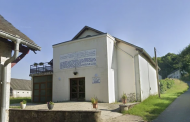Ali Rajab
In a verbal intervention at the UN Human Rights Council’s session on urgent issues requiring urgent attention, the Maat Foundation for Peace, Development and Human Rights highlighted the grave violations by Tehran against minorities in Iran.
Iran is made up of ethnic and religious groups that have long been a source of concern for successive regimes and governments, especially after the advent of the ultra-nationalist (Persians) and narrow sectarian system (Faqih), which widened the gaps and distances between them and these nationalities and minorities by adding sectarian racism.
Racism is dominated by the former regimes, especially the Pahlavi regime, and the breadth of this gap varies from national to national, but Kurdish, Baluchi and Arab nationalism are considered the most repugnant to the current Iranian regime. They consider it an occupier of its land and an oppressor to its citizens.
Mullahs and minority rights
In a statement, the Foundation claimed responsibility for these violations of the Iranian regime, which oppresses freedom of opinion and expression, association and peaceful assembly, as well as freedom of religion and belief.
According to internal Iranian reports, 51% of the Iranian people are Persians, 24% are Azeri, while Jilki and Mazandrani constitute 8%, Kurds 7%, Arabs 3%, Lourdes 2%, Baluchs 2% and Turks 2 %.
The majority of the population is Azerbaijan, Turki, Ziljan, and Erbil while they constitute about half of the population in the province of Qazvin and Kulestan, about 25% in the province of Tehran and about one fifth of the population in the western province of Azerbaijan.
Meanwhile, Kurds constitute the majority in about seven governorates: Jahar Mahal, Bakhtiari, Western Azerbaijan, Kurdistan, Kermanshah, Lerstan Ilam, Kekilwiye and Boer Ahmed, and constitute half of the population of Hamadan province and two thirds of the northern Khurasan governorate.
Arabs constitute the majority of the inhabitants of Ahwaz and half of the population of Hormuzgan province, while they make up the Baloch majority in Sistan and Baluchistan province and a quarter of the population of Kerman province.
Iranian regions with non-Persian ethnic minorities, particularly the Kurds and Ahwazi regions, have witnessed regular and almost continuous protests against the racism and insults of the Iranian regime towards the national minority.
The Iranian government has also marginalized Ahwazis by forcibly confiscating land; diverting rivers from Ahwaz to Persian areas; reducing the amount of water available to the Ahwaz people; and discriminatory employment practices that deny Ahwazis jobs.
In this latter case, positions are often held for citizens of Persian ethnicity, who also receive financial incentives, and houses in specially constructed housing, where they are prevented from living.
After every demonstration against these injustices, both the regime’s police and the paramilitary Basij sector in Iran are conducting raids on the Ahwazis’ homes, arresting hundreds of them and serving long prison terms on fabricated charges.
“While the authorities are oppressing all dissidents in Iran, non-Persian indigenous minorities are subject to much greater persecution. This comes in addition to the authoritarian repression practiced by the authorities and their treatment of the people,” said Sharif Abdul Hamid, director of the research and studies unit at the foundation. Non-Persian citizens are treated as second-class citizens, depriving them of the right to education in their own language and of other rights automatically granted to Iranians of Persian ethnicity.
He stressed that the Iranian regime marginalized the Ahwazis by forcibly confiscating their lands and diverting rivers from Ahwaz to Persian areas.
This led to a decrease in the amount of water available to the Ahwaz people, along with discriminatory and racist employment practices that deprive Ahwazis of jobs.








































admin in: How the Muslim Brotherhood betrayed Saudi Arabia?
Great article with insight ...
https://www.viagrapascherfr.com/achat-sildenafil-pfizer-tarif/ in: Cross-region cooperation between anti-terrorism agencies needed
Hello there, just became aware of your blog through Google, and found ...